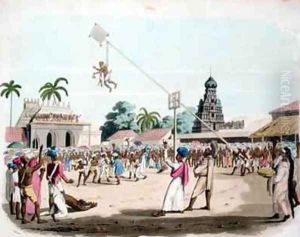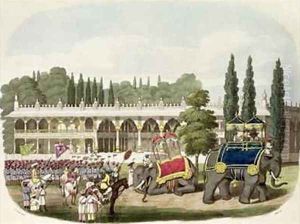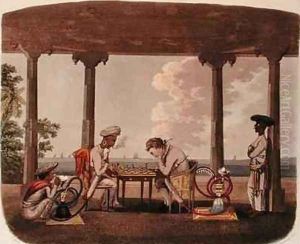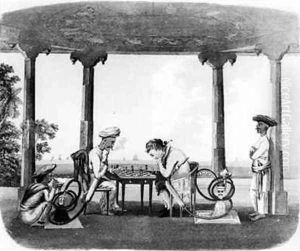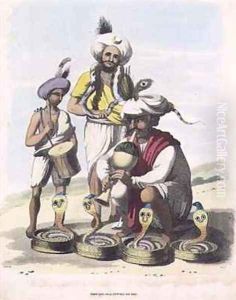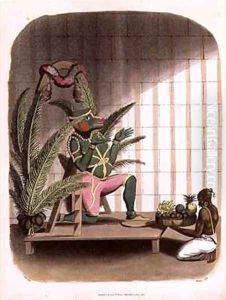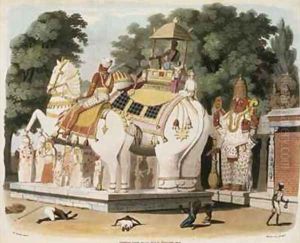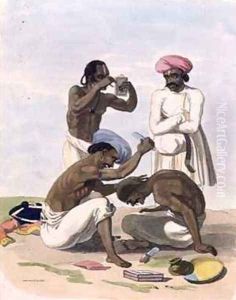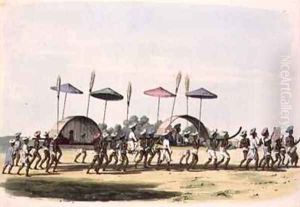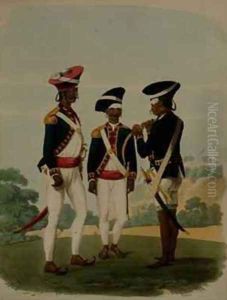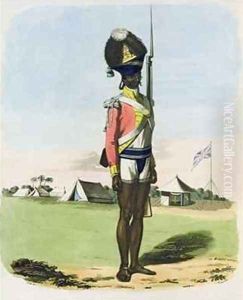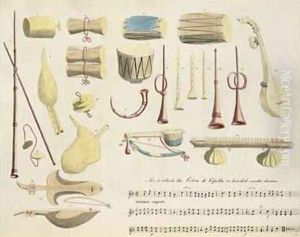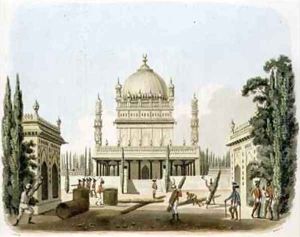Gold, Charles Emilius Paintings
Charles Emilius Gold was a British army officer and artist known for his detailed and picturesque paintings, particularly of landscapes and military subjects. Born on September 25, 1809, in Woolwich, part of the London Borough of Greenwich, England, Gold was the son of Major-General Charles Gold, reflecting a family tradition deeply rooted in military service. This background significantly influenced his later works, which often depicted scenes from military life and expeditions.
Growing up in a military environment, Gold pursued a career in the British Army, which allowed him to travel extensively, especially throughout the British Empire. His postings served as an opportunity not just for military duties but also for artistic exploration, capturing the landscapes and daily life of the regions he was stationed in, including India and New Zealand.
Gold's artistic career is particularly noted for his time in New Zealand, where he was stationed with the British Army during the 1840s. His works from this period are among the earliest depictions of New Zealand's landscapes and indigenous Maori culture by a European artist. His paintings and drawings provided invaluable insights into Maori society before significant European influence, as well as documenting the early stages of British colonial settlement in New Zealand.
Despite his military career, Gold managed to develop his skills as an artist, largely self-taught, and became renowned for his ability to capture the essence of the landscapes and peoples he encountered. His works were not only artistic but also served as ethnographic and topographical records, offering detailed views of the landscapes, flora, fauna, and peoples of the British Empire.
After retiring from the British Army, Gold continued to paint, and his works were exhibited in various galleries, including the Royal Academy in London. His paintings are now considered important historical documents as well as significant pieces of art, reflecting the British imperial perspective of the 19th century. Charles Emilius Gold passed away on August 7, 1871, leaving behind a legacy as one of the early European artists to document the landscapes and cultures of the British Empire's far-flung territories.
